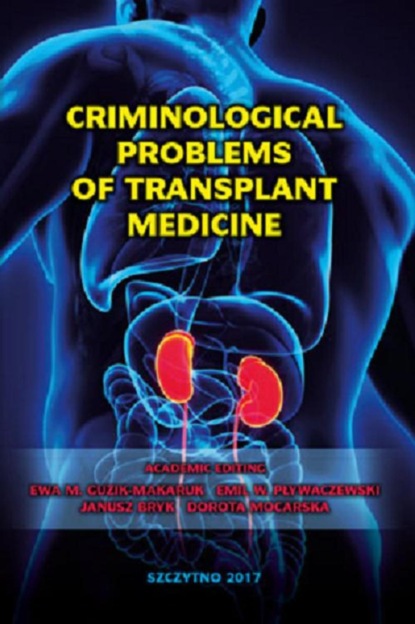0+
Criminological problems of transplant medicine
Raamatust
This publication is the development of aspects related to transplantation medicine in the broadly comprehended issues referred to trafficking in human beings and one of its form — illegal trade in human organs. The illicit trade in human organs and tissues is lucrative comparable to smuggling of weapons and drugs in the context of profits. States must address this growing phenomenon with the implementation of legal and organizational measures. Human trafficking results in many disadvantageous consequences not only for agriculture but also for other fields of social and public life and results in a danger to the security of state. Trafficking in human beings occurs in all countries of the world and is global. It has become an enormous illegal industry which brings tremendous gains for criminal groups. The following publication provides readers with observations and opinions emphasized by the representatives of not only polish research centers (University of Białystok, the Police Academy in Szczytno) but also institutions from Belarus and Turkey.
Majority of authors indicate a multifaceted nature of trafficking in organs. It results from relations of criminal world with poor donors, ill recipients and unscrupulous representatives of medical environment.
Hence, the questions of a legal and ethical nature rise. The subject matter pointed out by the content of specific articles proves that the phenomenon of trafficking in organs, tissues and embryos involves a constant verification and control for the effectiveness of combating this crime. The added value of the writing is the formula of two languages — English and German, adopted by editors which enables a wider audience to get
familiar with its content. The publication targets a wide group of recipients, in particular: practitioners
(police officers, prosecutors, judges) as well as students of the faculty of law, criminology and internal security.
